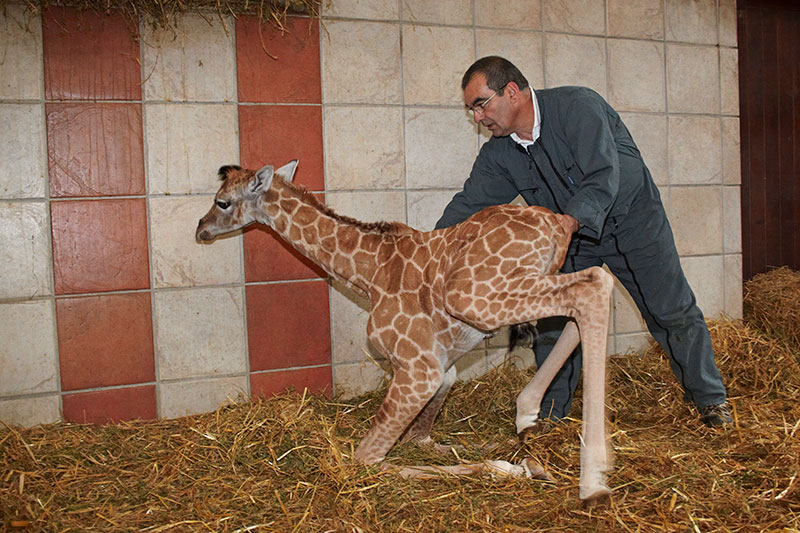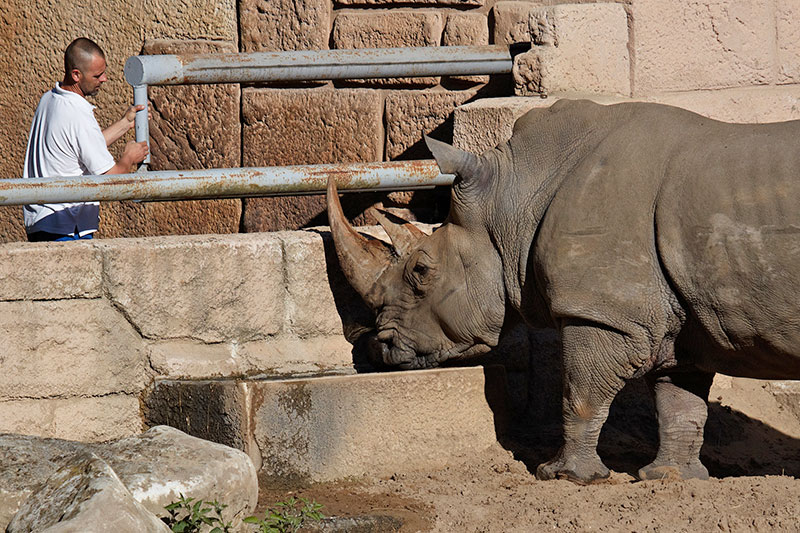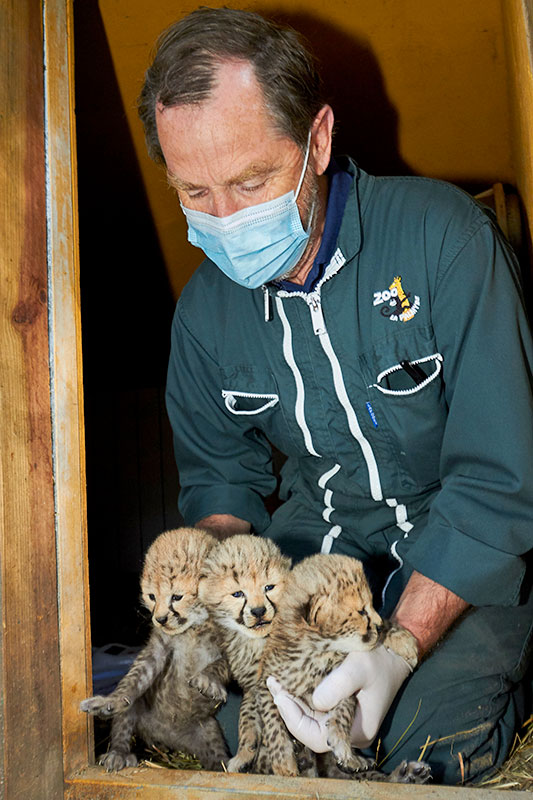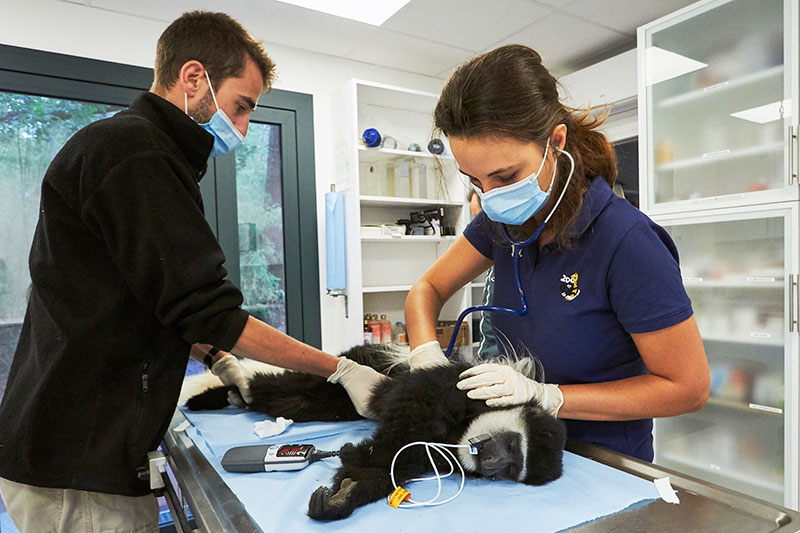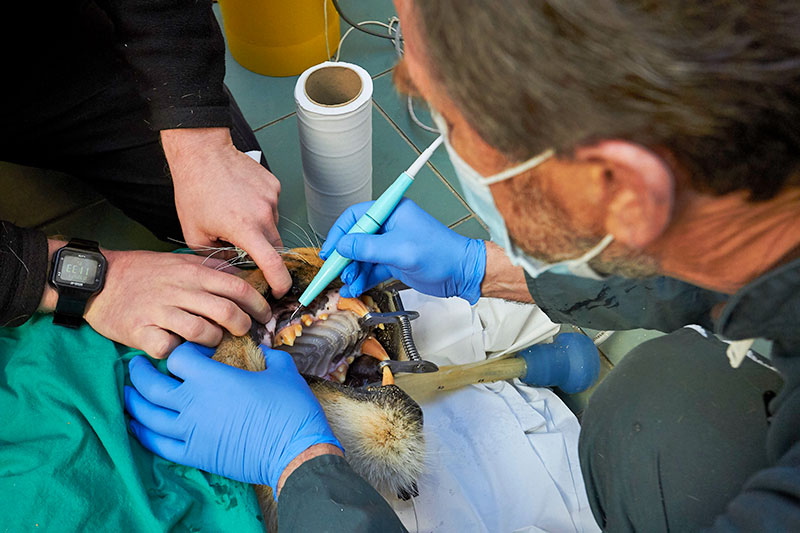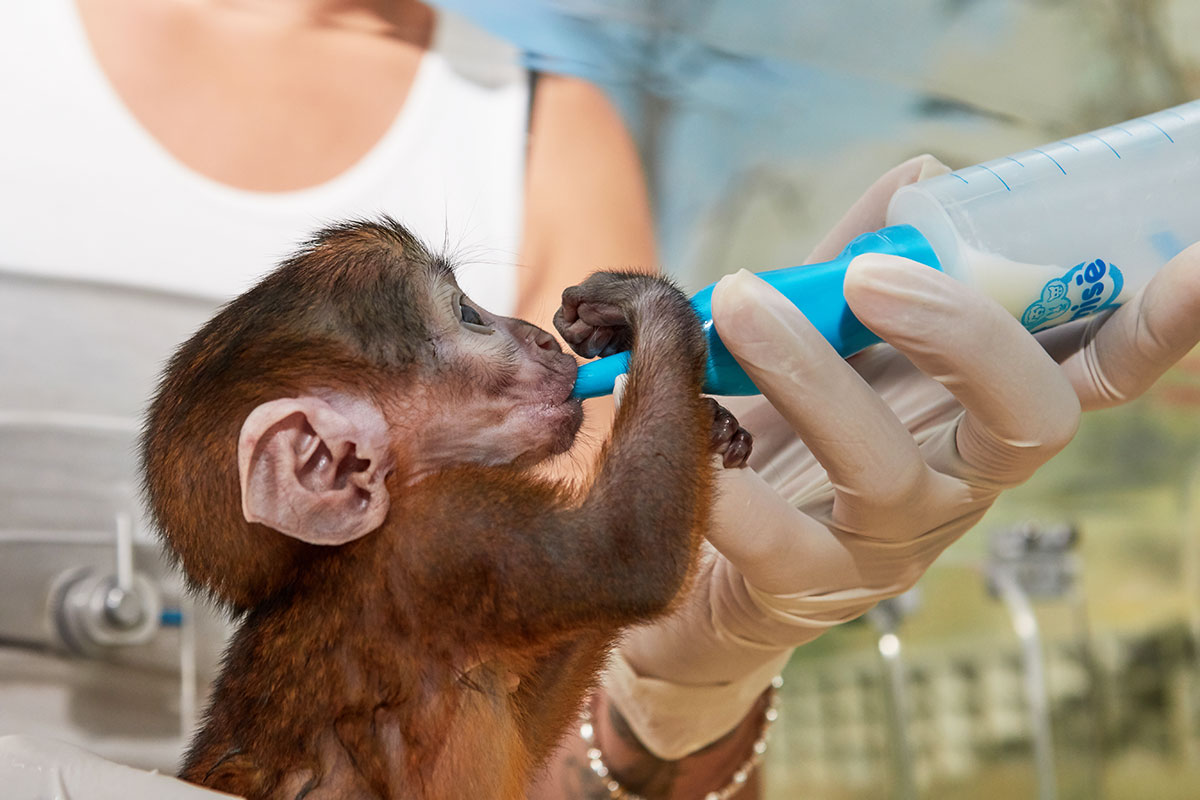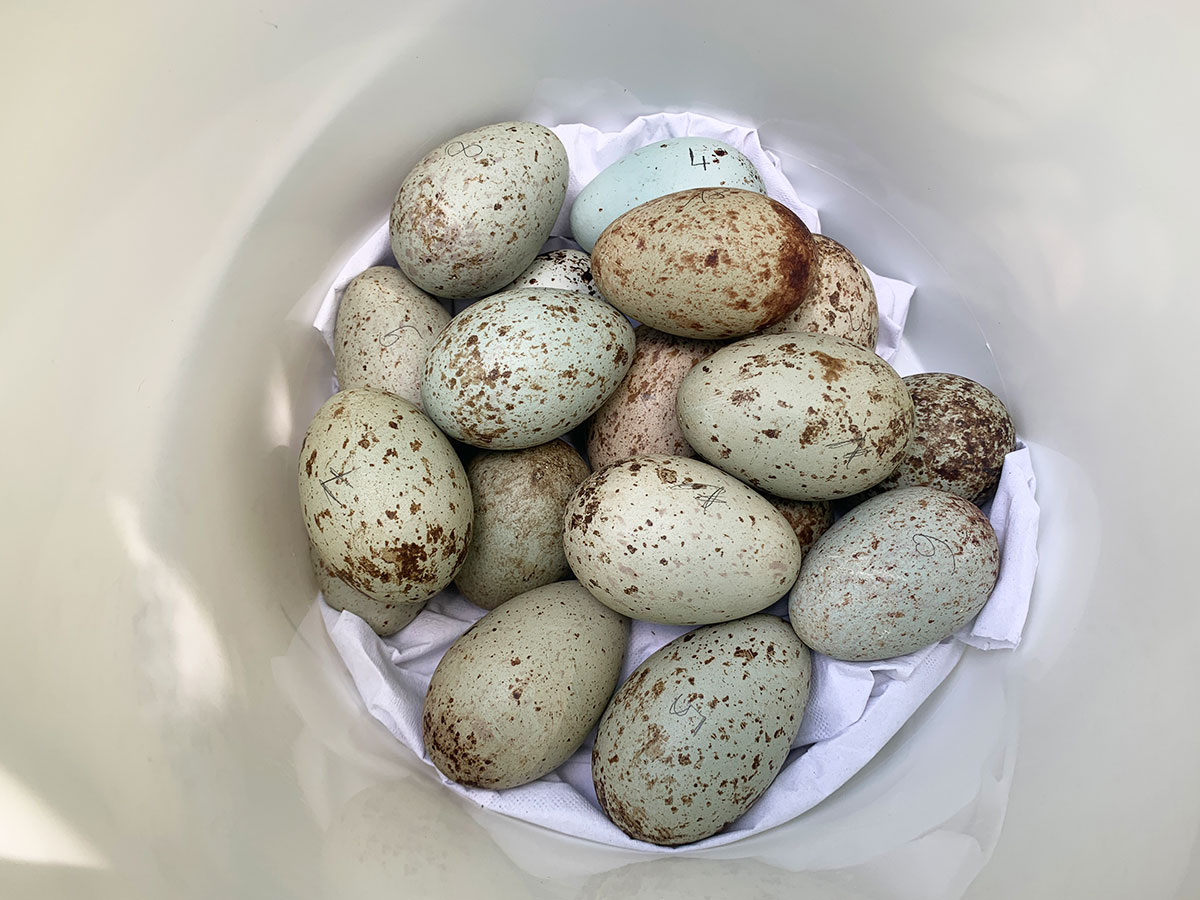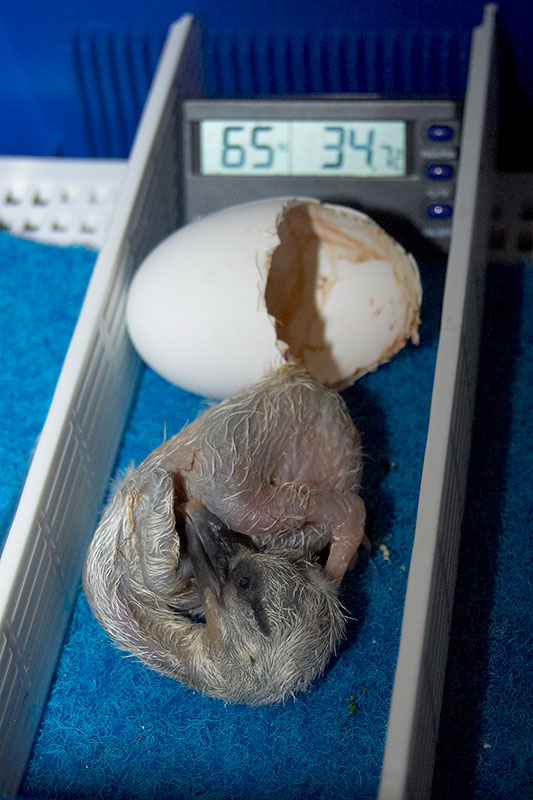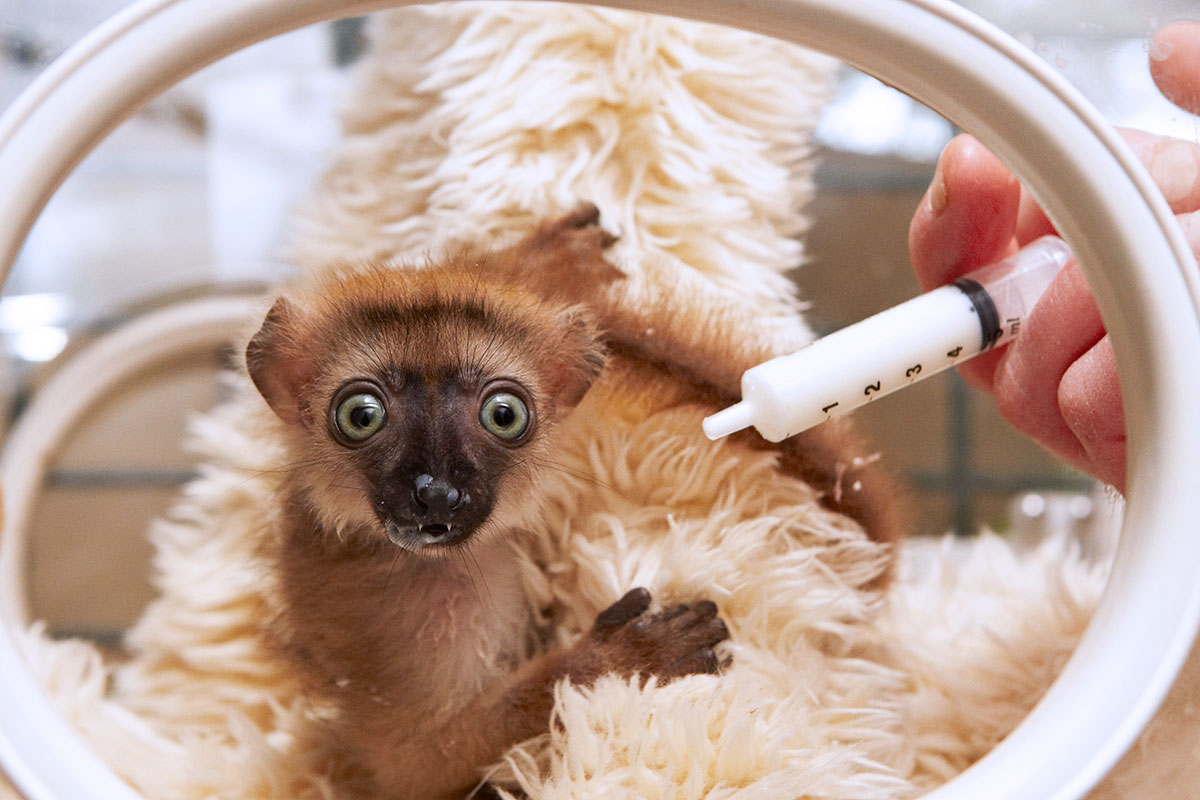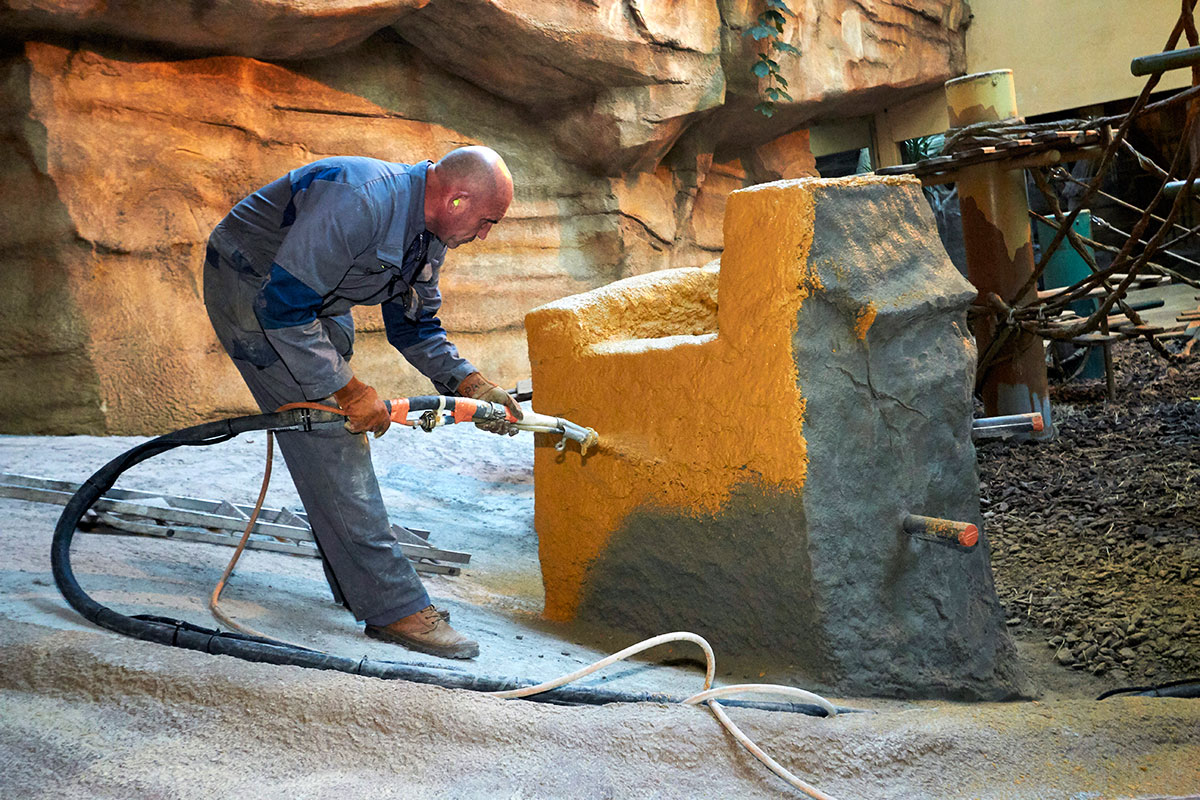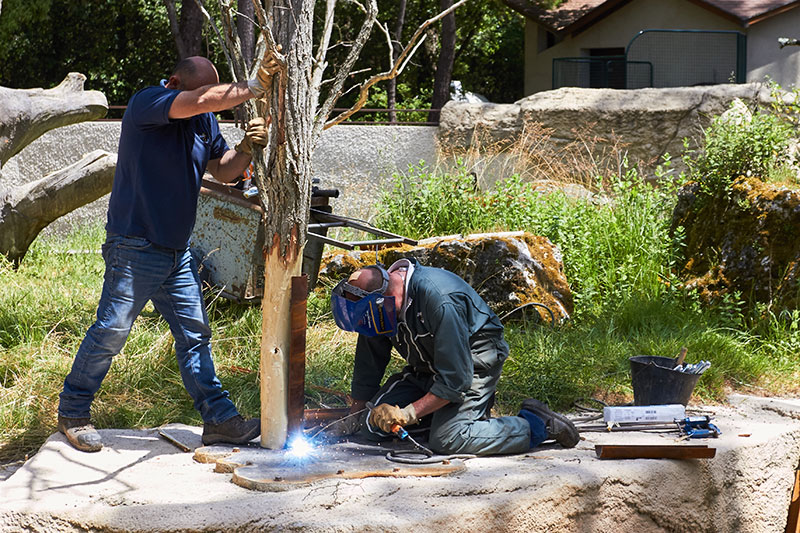Jobs in a zoo

A team that works hard every day to care for the animals
La Palmyre is a little town in itself, with various trades busy ensuring the best quality of care for the animals and strict maintenance of the site. Almost €20,000 is needed every day of the year to keep the zoo running.
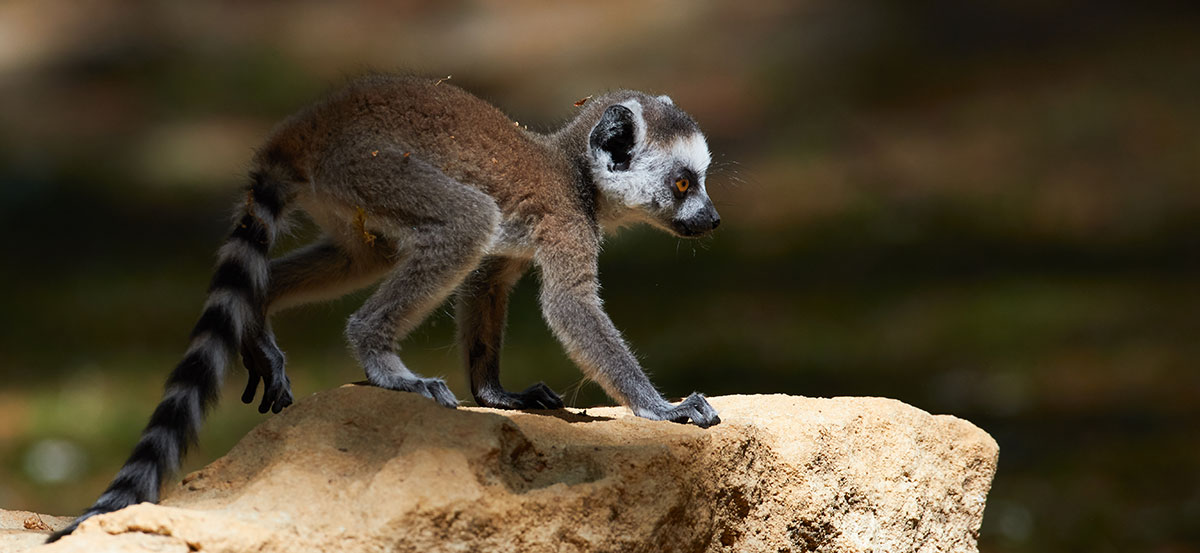
Animal keepers
clean the animals’ enclosures and buildings and feed them. Each morning they make sure the animals have had a good night and are well. If they spot the slightest anomaly (for instance, if an animal hasn’t eaten, if it has an injury or if its behaviour has changed), they call the vet at once. This is a tiring job involving some physically demanding tasks (raking, carrying heavy things...) and also weekend/public holiday work. Keepers are not allowed direct contact with dangerous animals such as big cats, apes, hippopotamuses or elephants.
What qualities do they need?
Energy, good observation skills, conscientiousness and, of course, a love of nature and animals! A lot of zookeepers learn ‘on the job’, being recruited without any specific qualifications. However, there are specialist training centres in Gramat, Carquefou et Vendôme.
The vet
is responsible for the animals’ health. He/she can also manage transfers of animals to or from other zoos necessitated by births, deaths, genetics and conflicts that occur within groups.
The vet’s mornings are spent on ‘on-the-ground’ care – administering medical treatments, overseeing the healing of a wound or recovery from an injury, and carrying out anaesthetics (either planned or, when an incident is reported by a keeper, emergency). Afternoons tend to be taken up with administrative work: upkeeping registers, responding to emails, updating individual treatment files…
The zoo has a surgery building, digital radiography equipment, an autopsy room and a quarantine centre.
Nursery
Two buildings serve as the zoo’s ‘nursery’: one, next to the bison enclosure, is exclusively used for breeding birds, whereas the one behind the bird presentation area is normally for mammals.
Each building is fitted with couveuses, incubators and terrariums with heat lamps. Baby animals with a disease or who are not being raised by their mother (because of a lack of milk or maternal instinct) are taken in by the nursery carers at the vet’s request.
Nursery carers act as substitute mothers yet must at the same time restrict their contact with animals they take care of to minimize the phenomenon of imprinting and ease the future reintroduction of the individual to its family group or to others of its kind.
The technical team
maintains the pumps, filters, heating materials and other equipment essential for ensuring the quality of the animals’ environment. They are also responsible for the security of the zoo compound.
Other parts of the zoo call upon them to repair defective machinery, a water leak or a power failure. Two technicians specializing in locks and soldering are also involved during the construction of new buildings and the laying out of enclosures both inside and out (attaching apparatus, welding wire meshes, maintenance of hatches and locks…).
